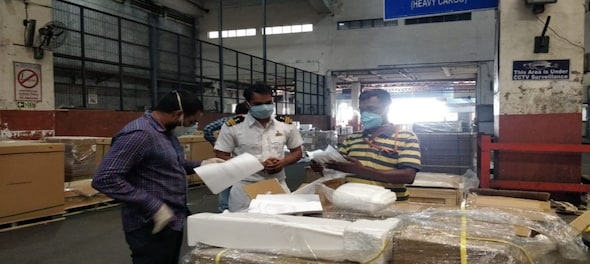
Enforcement is an important aspect of all customs administrations. As economist Joel Slemrod has written, a tax system can be defined as a set of rules, regulations, and procedures with three essential elements. The event that triggers tax liability, on whom and how much is the liability, and finally, the procedures for ensuring compliance and the consequences of violation.
Tax evasion results in money that can otherwise be used for government and social projects not being available; it reduces equity and efficiency. As the World Customs Organization (WCO) points out, the effectiveness of an administration’s compliance efforts impacts the economic and social well-being of a country. Hence, we cannot have a set of rules and be helpless spectators to somebody flouting them with impunity.
So, while specialised agencies like the Directorate of Revenue Intelligence (DRI) tasked with the 'detection and curbing of smuggling' as well as 'combating commercial frauds relating to international trade and evasion of customs duty' keep a diligent eye, coordination, collaboration, and cooperation between agencies is critical. This is because of the extent of the problem and the devious methods adopted by criminal elements.
Unfortunately, enforcement agencies the world over tend to work in silos; invariably, there is a serious trust deficit, and sharing of intelligence becomes a casualty.
Against this background, the recently held three-day-long First Global Conference on Cooperation in Enforcement Matters (GCCEM) is a welcome step. The Conference resolved to reinforce cooperation among customs administrations, international organisations, and law enforcement agencies in the fight against cross-border crimes.
As per the PIB press release, technical sessions in the Conference covered issues faced the world over, with a focus on the post-COVID-19 pandemic smuggling landscape and emerging trends. It may be recalled that the trend of smuggling changed significantly during the pandemic; medical equipment and medicines (on most occasions, spurious) were smuggled to meet demand.
Dedicated sessions held on combating narcotics-related cross-border crimes drew attention to new technologies, innovative means, and evolving sourcing and distribution methods adopted by smuggling syndicates. India, by virtue of its geographical location, faces the challenge of having to combat drug smuggling from both the north-western and north-eastern borders. While the Indian enforcement agencies, including the DRI, have had some humongous seizures, the problem continues.
The press release mentions other technical sessions that, inter alia, covered best practices for combating tobacco smuggling. Given the fact that globally the tax structure for tobacco products is high and demand is unabated, there is a huge incentive for tobacco smuggling. Here again, India has done exceedingly well. As per a FICCI CASCADE study, 18 crore illicitly traded cigarette sticks were seized between March 2022 and March 2023.
The sessions also discussed ways to counter the smuggling of the flora, fauna, and heritage of regions and countries. It may be recalled that India had initiated a global operation named Sesha to counter the illicit trade in Red Sanders, a CITES-protected timber. The challenge of handling the rising volumes of e-commerce and postal/express consignments due to the unique nature of e-commerce and anonymity with a very low-cost and low-risk alternative to smugglers was also said to have been discussed.
Discussions were also said to have been held on the phenomenon of the smuggling of precious metals and gems. Given the cultural ethos and obsession with the yellow metal, this is an issue unique to India and other South-Asian countries. Indian enforcement agencies have had outstanding success in detecting and curbing the smuggling of gold.
The conference is said to have also focused on establishing linkages between money laundering and cross-border smuggling of such contrabands; every act of smuggling involves money laundering, and it is hoped that the discussions in the conference were not restricted only to such linkages with precious metals. Incidentally, a Financial Action Team Force (FATF) team is currently in India reviewing the effectiveness of the required legal framework against money laundering.
The need for capacity building, augmenting resources, and building inter-agency cooperation within countries and outside, all essential to effectively counter illicit trade, were also discussed. These are the weakest parts of the enforcement machinery.
Capacity building suffers since administrations are too busy countering threats to have the luxury of sending officers for training; enforcement agencies often tend to get neglected with regard to resource enhancement both in terms of men and equipment. Cooperation, as mentioned earlier, is less than desired; there is perhaps greater trust and cooperation between criminals across borders than between enforcement agencies.
The WCO has put in place technological mechanisms for seeking international cooperation in pursuing transnational and organised crimes. The Conference is said to have highlighted the need to use these more effectively. Several global enforcement operations with a specific focus on particular commodities have shown that where there is a commonality of purpose, successful cooperation is possible.
The Central Board of Indirect Taxes and Customs (CBIC) has customs cooperation agreements with several administrations. While these agreements have their limitations, we would need to use them more often—if not for any other reason than to test their effectiveness.
The Finance Minister who inaugurated the conference stressed the need to 'disrupt illicit trade, catch hold of the masterminds, and break the syndicates, with an emphasis on increased coordination and cooperation among agencies’.
The GCCEM will hopefully result in increased coordination, collaboration, and cooperation—the first step to effectively thwart the growing threat of illicit trade.
— Najib Shah is Chairman (retired) of the Central Board of Indirect Taxes & Customs. Views expressed are personal
(Edited by : Ajay Vaishnav)
Check out our in-depth Market Coverage, Business News & get real-time Stock Market Updates on CNBC-TV18. Also, Watch our channels CNBC-TV18, CNBC Awaaz and CNBC Bajar Live on-the-go!


10% discount on fare on Mumbai Metro lines 2 and 7A on May 20
May 3, 2024 2:40 PM
'Rahul Gandhi deserted Amethi due to fear of Smriti Irani': How BJP plans to puncture Congress' UP plan
May 3, 2024 1:12 PM

